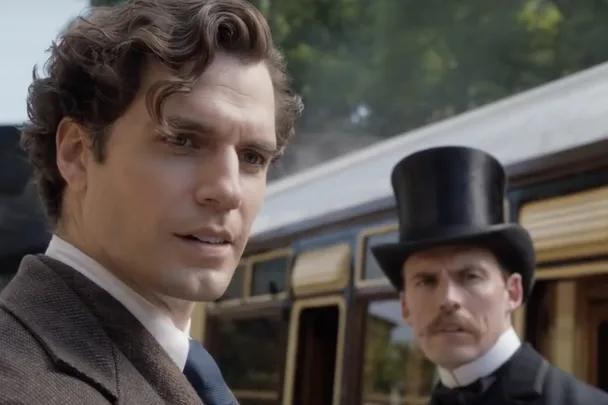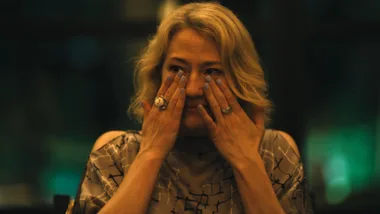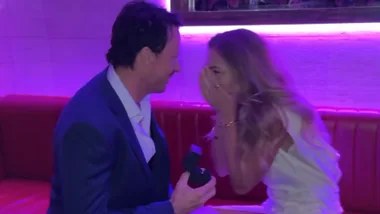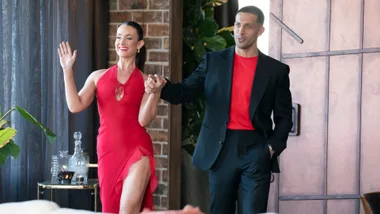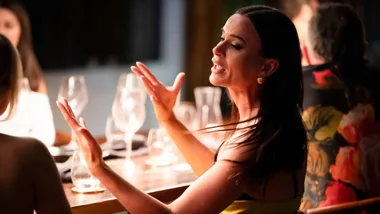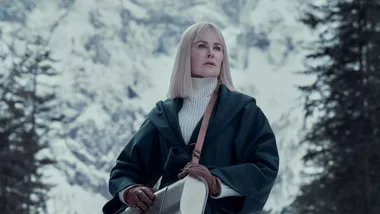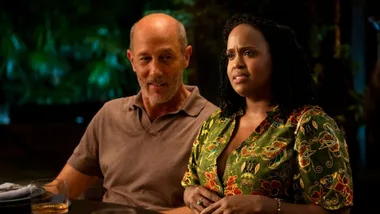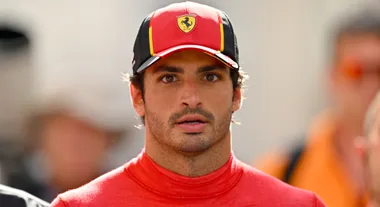In Enola Holmes, Henry Cavill takes on the role of Sherlock Holmes. Although he’s usually the main character, Cavill’s Holmes plays the older-brother role to Millie Bobby Brown’s Enola, a teen private investigator in the making. But, the crux of Cavill’s arc as Mr. Holmes isn’t uncovering a mystery, it’s being confronted with his own white male privilege.
Directed by Fleabag director Harry Bradbeer, Enola Holmes is a thoroughly modern take, set in the foreground of the women’s suffrage movement in the United Kingdom in the late 19th century. At Enola’s sixteenth birthday, she learns her mother Eudoria, played by Helena Bonham Carter, is missing. So, she sets out into the big scary world to find her, soon discovering a secret lair owned by her mother in London, and learns that she is the resilient and tenacious face of the underground fight for women’s rights at the time.
Meanwhile, Sherlock Holmes, another member of the family on his own path, is tasked with chasing after Enola so their eldest brother Mycroft can put her in a re-education all-girls school to “be a proper lady”—much to Enola’s dismay, of course. When Sherlock learns about his mother’s secret identity, he doesn’t understand why she’d sacrifice so much of herself to do it, leading to perhaps the most iconic and quote-worthy line from the entire film, said by Edith (Susan Wokoma), the Black jujitsu teacher and tea shop owner.
“Politics doesn’t interest you because you have no interest in changing a world that suits you so well.”
It’s no secret that, for many decades, the world has been set up for white male gain and for everyone else’s oppression. It took decades for Indigenous Australians to get the right to vote and be treated equally in Australia—and we’re still not fully there yet. Women in South Australia were given the right to vote in 1894, but it didn’t put an end to misogyny.
But the notion of privilege doesn’t go unnoticed by Enola Holmes star Henry Cavill. In fact, as he told marie claire, Enola Holmes is a film about privilege, and its politics is “right there on the face of it all.”
“Well, the politics of Enola Holmes, it’s right there on the face of it all,” Cavill told marie claire. “It’s all about the haves, the have nots, privilege, it’s all about the feminist movement. It’s all about equality.”
“In the modern age, we are trying to normalise equality,” he continued. “And, in the story of Enola Holmes, they’re trying to make people realise that it just doesn’t exist at all. People are saying, ‘everything’s fine. What are you talking about?’ It’s about raising awareness.”
“And even in these times, we still need to raise awareness dramatically, but not nearly as much as they did then, where it’s a completely different time. We look back at this story and we think, ‘well that’s ridiculous. How can that not be the case?’ But, people may be looking back at us in 100 plus years saying, ‘that’s ridiculous. How is that not the case?’ It’s wonderful to have that perspective and viewpoint.
“The fact that [Enola Holmes] is about diversity and equality was a bonus,” adds Cavill, reflecting on his time working with Stranger Things star Millie Bobby Brown, Harry Bradbeer and Sam Claflin. “Really, it was something that was wonderful to be a part of, and I really, really enjoyed being a part of that message, and the importance that it carries. When it came to reading the script, I felt, ‘okay, this is absolutely a message that I stand behind.’”
Enola Holmes is available to stream on Netflix.
